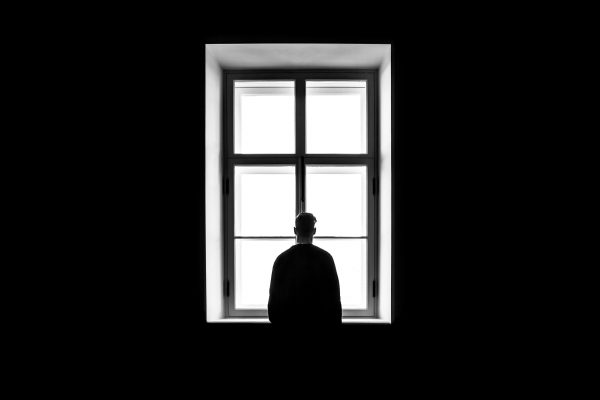I have mental illness and I am equally as Muslim as any other slave of Allah (swt). I am not more or less pious because of my mental illness.
I have mental illness and I am equally as Muslim as any other slave of Allah (swt). I am not more or less pious because of my mental illness.
I am a Muslim. I say this with pride.
Many may remember me as the mentally ill girl. Even I remember myself as the mentally ill girl before I reverted to Islam… But I traded my identity from “Mentally Ill” to “Muslimah”. I am empowered through this choice.
Islam taught me to be a better person, and Islam taught me to better handle my mental illness.
I am diagnosed with Borderline Personality Disorder (BPD), and I am still Muslimah. One does not invalidate the other. I have mental illness and I am equally as Muslim as any other slave of Allah (swt). I am not more or less pious because of my mental illness.
I have trauma because of my mental illness, and I was unable to take care of myself on my worst days, months, and years. The consequences of this were homelessness and suicidality, hopping hospitals, and institutions. My behaviors can sometimes be reactive towards people, places, and events that remind me of the trauma. But by being a Muslim before being mentally ill, I have some control over my behaviors.
Firmly, I am a Muslimah. And oh, I say this with pride because Islam can be the solution for mental illness!
Historically, Islam has brought communities together. Islam has brought nations together. In the beginning of time, Al Khaliq brought the universe together. Am I to believe Allah (swt) can’t bring my life together if He so wills?
There is hope in Allah (swt). There is hope in salat. There is in zakat. There is hope in Ramadan. There is hope Hajj. There is hope in saying “La ilaha illalah. Muhammadur rasulallah”. If the pillars of Islam can raise a society, it can restore a person. There is hope in Islam.
I believe you have to want mental health to get closer to Allah (swt). And you have to want Allah (swt) to get closer to mental health. But I don’t think you have to wait for mental health to get started – getting started takes you to mental health. The goal is to practice the deen and implement mental health exercises in your life.
I believe deen and mental health go hand and hand. Our Prophets, peace and blessings be upon them, dealt with their own emotional distrubances of sadness, anger, and impulsivity. When Islam was revealed to them, only then did they become Prophets. They had lives before Prophethood.
Nabi Musa, peace and blessings be upon him, killed a man out of anger. Allah (swt) forgave him. He was also insecure about his speech impediment, so Allah appointed Nabi Harun to assist him. He was impulsive and didn’t easily learn with his teacher, and yet has a high status. He is mentioned the most in the Holy Quran – we have story after story and lesson after lesson from Nabi Musa. Alhumdullilah.
We know our beloved Nabi Muhammad, peace be upon him, suffered grief for a long time. Prophet Yusuf had depression so terrible, he went blind from crying. Prophet Nuh and Lut had to feel immense betrayal when their loved ones didn’t follow Allah’s (swt) message. Mariam, mother of Eesa, peace be upon them, literally wanted to die than to deal with the embarrassment of bringing her child into her village without being married. But they followed Allah despite their troubles. Ease came. Ease went. Trust in Allah (swt) stayed.
“Surely with hardship comes ease.”
Not before, not after. “With” hardship comes ease. Read this clearly. Success isn’t always linear, and it is slow, and people plateau and people fall backwards and rapidly recover forwards again insha’allah.
What does this tell you? You can learn a lot from people with emotional disturbances that effect their behavior, in other words mental illness. This is why I am a proud Borderline Personality Disorder sufferer. Yes…sufferer! Because with Islam, I don’t have to suffer. With Islam, I have a recovery story to teach others with. My mental illness became a dawah!
Do not shame me for recovering from mental illness. Do not shame me for talking loud about it. It’s a discussion someone needs to bring to the table.
Do not shame others for being trapped in their mental illness. The goal is mental health. There are many ways to achieve this. I personally took the route of seeing a therapist. To fit my needs, she is Muslim as well. There are many different types of therapy out there, and I encourage individual therapy, group therapy, EMDR, DBT, medicine by a reputable psychiatrist, and NAMI support groups.
People suffering are in a temporarily fragile state of mind. If they cannot take care of themselves, they need support by loved ones until they can. Guilt-tripping into becoming more religious is dangerous and rarely helps to get closer to Allah (swt). But if there is a will, there is a way. Just not your way but Allah’s (swt).
The goal is mental health by being close to Allah (swt). But no one can force a spiritual solution upon the person suffering, they have to wake up and take responsibility to make that personal choice independent from the people watching from the outside.
We all have battles. I look at my BPD as a jihad. Sometimes, BPD is not just my jihad, but also my loved ones’ jihad. Mental illness effects not just the one afflicted with it.
To the people watching a loved one suffer from mental illness, your job is to pray. Hold on to your deen tightly. Your job is to research. Your job is to learn how to be supportive but keep your boundaries so you are not manipulated by the disease. For mental illness is an insidious disease.
This does not mean condoning or accepting violent behavior. This does not mean accepting drugs or alcohol around you. This does not mean being lax with zina in your home. Do not enable. Natural consequences are the best teachers, and the observer or supporter must have rules to protect their iman and deen.
The person suffering must have a will to get better. It is only when you are on the same page that you can will see your help and your deen-based example of living benefit them.
It’s hard to watch from a distance. Your loved one is discinigrating from a ruthless disease right in front of you and you feel helpless. Mental illness, if not treated properly, can lead to death. It is extremely difficult to seek recovery for all parties involved, and there are multiple factors that need awareness.
Scheduling appointments is draining. Medication changes and side effect malfunctions are heartbreaking. Insurance troubles is expensive. For the loved one suffering and of the family and friends surrounding them, mental illness is devastating like other diseases. It is a family disease, but remember that there is always an Islamic cure.
May Allah (swt) protect you and guide you. Ameen.





